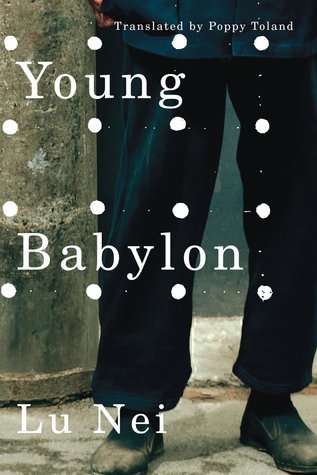Lu Nei: Aiming for greatness
- By Zhang Lulu
 0 Comment(s)
0 Comment(s) Print
Print E-mail China.org.cn, May 24, 2018
E-mail China.org.cn, May 24, 2018
China.org.cn: Which works of yours have been translated into foreign languages? Which ones would you most want to be read outside China?
Lu: "Young Babylon" and "A Tree Grows In Daicheng" have been translated into English. "Cibei" (lit. "Mercy") has been translated into Arabic and Bulgarian, and a Korean version is waiting to be published. The English translation of "Mercy" is in progress.
I suppose [I most want foreign readers to read] "Young Babylon" and "Mercy." The latter is a story spanning almost 50 years, and offers some new insights on China, [politically] a bit on the left and a bit on the right. Also, I want to discuss in the novel whether Chinese have a sense of religious faith. Chinese are known to be atheists, but there are actually a large number of Christians and Buddhists. Buddhism has a lot of secular elements, and in that sense, whether that can constitute a sense of spirituality in the Chinese people and whether that can make them happy and lead them to do good – that is what I want to discuss in the novel.
"Young Babylon" is different. There are many politically incorrect things in the novel, and I want to see how foreign readers respond to that.
China.org.cn: What do foreign readers think of your novels as far as you know?
Lu: For Chinese writers, especially novelist, it is very diffcult for them to be read widely outside China. I delivered a speech at the Frankfurt book fair in 2016, where I found most of the people in the audience were just passers-by. But there was an old Austrian man who brought with him two of my Chinese books for autograph. I asked him if he read Chinese. He said no, but that he had read the English translation of "Young Babylon" and flew from Austria to meet me. I was moved. If I can claim to have readers in Europe, that man was the first I knew.
China.org.cn: In your view, how are contemporary Chinese novels received in foreign countries in general?
Lu: Things are better with the older generation of novelists. They often work with a good publishing house that does better promotion work. As for their writings, I think they can meet foreign readers' expectations about China at the time they wrote. When foreign readers approach Chinese literature, they bring with them some preconceived notions about China, which can match with stories written by Chinese novelists from the older generation. This is a problem for novelists in my generation, and not only in consideration of foreign readers, but those in China as well. That is, does our writing reflect the real world in contemporary China? If the novels do not even match up with what Chinese readers understand about the reality in this country, then it would be even more problematic for foreign readers.







Go to Forum >>0 Comment(s)